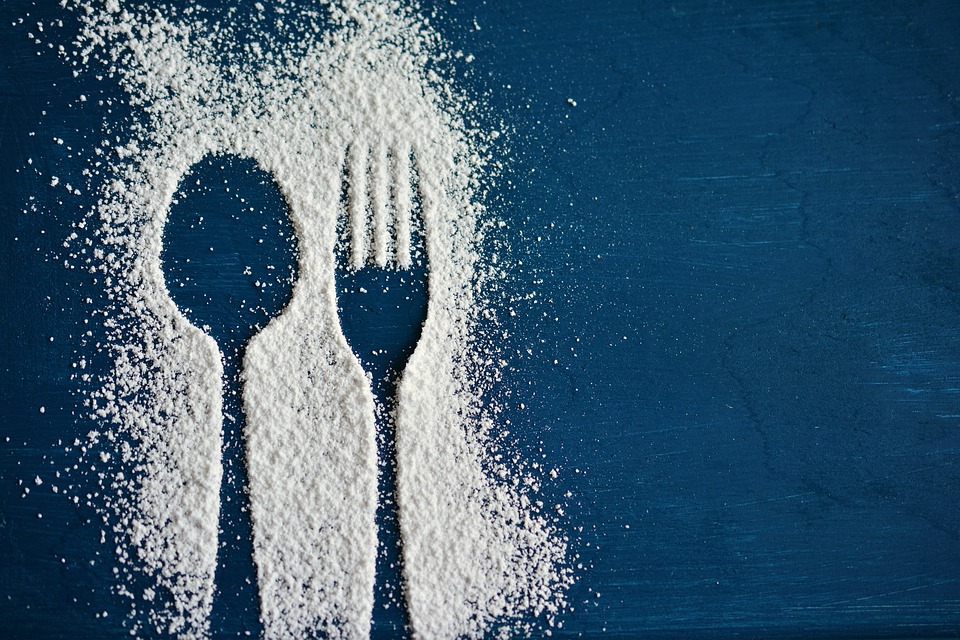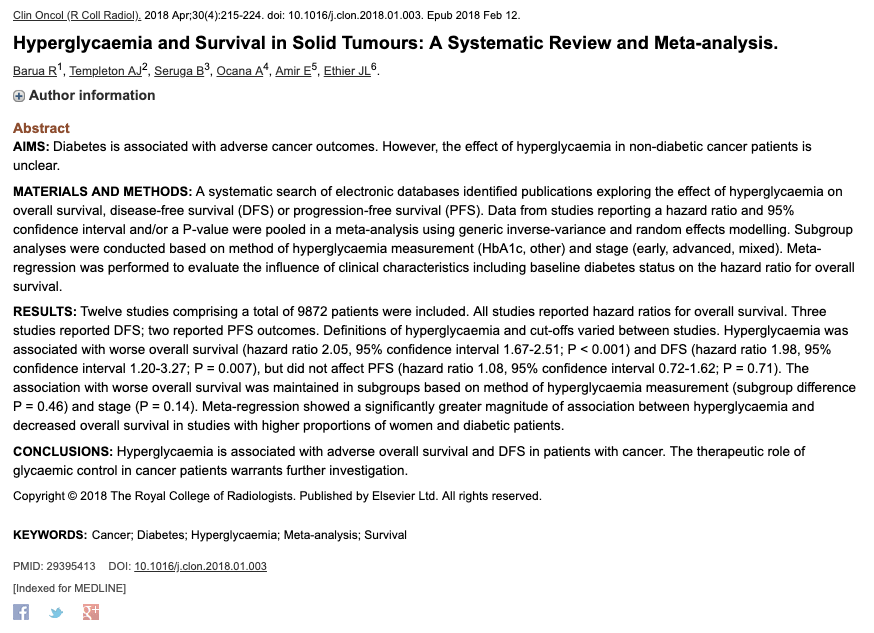
Are We Feeding Cancer?
A 2018 systematic review of 12 studies of 9,872 patients finds cancer patients with solid tumors have a 200% higher chance of dying if they also have hyperglycemia (high blood sugar).
This large literature review suggests that higher blood sugar levels may feed cancer cells regardless of whether the individual was diabetic or not.
This was a theory originally proposed by Nobel laureate, Dr. Otto Warburg, in the 1930’s.
Warburg found that cancer cells used the fermentation of sugar for energy production instead of relying upon oxygen. This was the beginning of the metabolic theory of cancer.
In his Warburg’s own words…
“Cancer, above all other diseases, has countless secondary causes. But, even for cancer, there is only one prime cause. Summarized in a few words, the prime cause of cancer is the replacement of the respiration of oxygen in normal body cells by a fermentation of sugar.” Otto Warburg
Researchers have found significant support for this idea as evidenced in the reference below.
It’s also interesting because there is good evidence that sedentary people who do not exercise are at a greater risk of many cancers. Sedentary behavior is strongly associated with poorer blood sugar control.
Being overweight is associated with a significantly increased risk of 13 different types of cancers.
Diabetics are at greater risks of many cancers. Of course diabetes is defined by elevated blood sugar markers.
Interestingly in the study mentioned above, elevated blood sugar doubled risk of cancer deaths in diabetics and non-diabetics.
Certainly cancer is a complex problem and undoubtedly there is not a singular cause or treatment.
It does seem like a great idea to reduce blood sugar to reduce risks of dying from cancer and probably even getting cancer.

Reference:
Hyperglycaemia and Survival in Solid Tumours: A Systematic Review and Meta-analysis.
Clin Oncol (R Coll Radiol). 2018 Apr;30(4):215-224. doi: 10.1016/j.clon.2018.01.003. Epub 2018 Feb 12.
Barua R1, Templeton AJ2, Seruga B3, Ocana A4, Amir E5, Ethier JL6.
https://www.ncbi.nlm.nih.gov/pubmed/29395413
 Protected by Patchstack
Protected by Patchstack
Leave a Reply